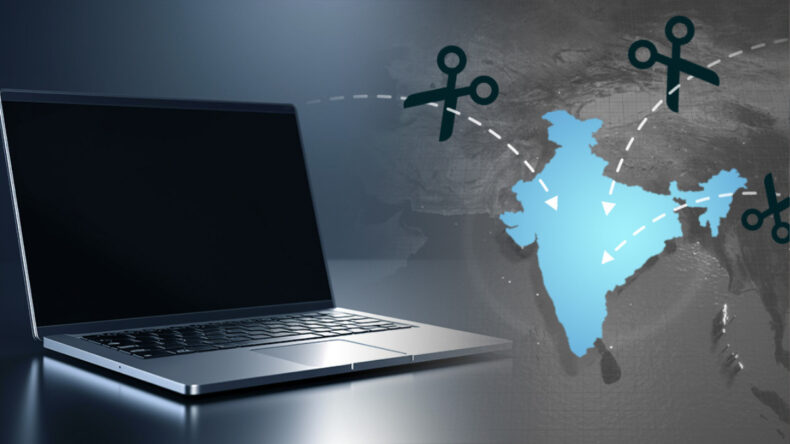As India launched its new policy of banning imports of laptops, in demand companies like Apple Inc., Samsung Electronics Co. and HP Inc. were caught off-guard in the sudden licensing imposition by the Indian Government. The new imports which were already set up on their way to India through inbound shipments, were banned abruptly with no prior information.

Laptop companies had been preparing for some government measures and rules and regulations to be implemented, but the sudden strictness and licensing imposition being made mandatory was something the companies were not looking forward to.
The licensing was made mandatory for all the foreign brands and all types of electronics of the company, from small sized limited functions tablets to all-in-one personal computers owned by the company.
Purpose of the government to ban laptops
The basic motive of the Indian government to impose licensing restrictions on the laptops import was in an effort to boost the local manufacturing companies of laptops in India and lower the reliance of India on exported laptops.
The restrictions on the shipments from overseas is an example of India’s sudden shifts in policy, which in future will heavily discourage foreign shipments or imports. Long term plan of India is to establish a world-class tech manufacturing industry by banning foreign product imports.
Prime Minister Narendra Modi’s government is currently seeking applications for a 170 billion-rupee ($2.1 billion) financial incentive plan to draw makers of laptops, tablets and other hardware to the world’s most populous nation as companies look to diversify supply chains beyond China.
Despite all the losses faced by the companies and the public in general, the representatives and officials for India’s trade ministry, of Apple, Samsung and HP, are not responding quickly to the requests of the companies.
Why are these companies among the most affected?
Tech firms like Apple Inc., Samsung Electronics co., and HP Inc., are among the most affected companies. They are now regularly engaging with New Delhi officials on ways to quickly obtain a licence so that its operations can go back to as they were earlier. These quick relief being sought by the companies is because the Diwali shopping season is approaching and during this period these companies witness heightened consumer interest. They usually provide a great deal of discount on their items which lead to a generation of great sales.
Back-to-school period is approaching from August after a two-month long summer vacation.
Consequences of the licencing import on the companies
The major halt caused by the sudden licensing imposition is disrupting a multi billion dollar trade.
Apart from the losses being suffered by the foreign companies, the ban is also impacting India in a serious way. The local manufacturers did not have so much pressure on them to increase their inventory and sales. All this time there had been more savings than they had investment or a global glut of inventory with so much competition around the manufacturers. The companies have much of a revenue to restart their sales or increase them so quickly.
These factors may lead to a delay in market launches of the laptops in India. Delaying if the supply may increase the demands of the customers which in turn will lead to a price inflation of the products. And if the supply won’t meet the demands of the consumers, the market may face a product supply shortage as almost more than half of the market is relying on the import shipments from overseas.













